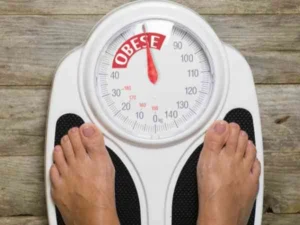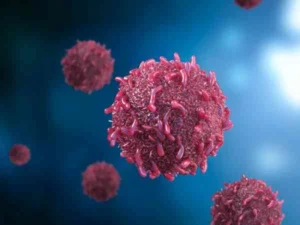Keto Diet for Weight Loss has been among some of the most popular weight diet plans. The Keto diet is a diet plan in which emphasis is given to carbohydrates in food. Under this process, the amount of ketones in the liver is increased which helps in rapid weight loss through ketosis. Ketosis is a metabolic process that begins when the body starts burning fat for energy.
Due to low carbohydrate intake, the body remains dependent on fat for energy. But generally, everyone’s question regarding the keto diet is, what should be eaten in the keto diet? Also, the Keto Diet Plan for Indians, for example: how can we use the Keto diet according to Indian food and drink? Let us know with the help of this article.
What is the Keto Diet?

People have started following the Keto Diet to lose weight. The keto diet is a low-carb diet plan. It contains a maximum amount of fat, a moderate amount of protein, and a very small amount of carbohydrates. Earlier the Keto diet was given for medical reasons, which is now being followed for weight loss also.
Keto diet is mainly given to children suffering from epilepsy. In this, fat is made the main source of energy. In this way, it has the highest amount of fat sources. After that there is a moderate amount of protein and then the least amount of carbohydrates.
Some people start following this diet after reading here and there without expert guidelines. This not only does not reduce weight, it also causes much damage to the body. In such a situation, one must know what is the right way to follow the keto diet plan.
6 Benefits of Keto Diet

- Weight Loss: The keto diet is renowned for its effectiveness in shedding pounds. Limiting carb intake and focusing on fats, encourages the body to burn stored fat for energy, aiding in weight loss.
- Increased Energy Levels: With a shift to burning fat for fuel, many people on the keto diet report sustained energy levels throughout the day, avoiding the energy crashes associated with high-carb diets.
- Improved Mental Focus: The diet’s impact on brain function is notable. Ketones, produced during ketosis, provide a steady and efficient fuel source for the brain, potentially enhancing cognitive performance and concentration.
- Enhanced Physical Endurance: Athletes often turn to the keto diet for improved endurance. The utilization of fat stores for energy can prevent glycogen depletion, leading to sustained stamina during prolonged physical activities.
- Improved Blood Pressure: The keto diet may lead to lower blood pressure levels, benefiting cardiovascular health.
- Better Blood Lipid Levels: Besides influencing cholesterol, the keto diet can contribute to favorable changes in blood lipid levels, potentially lowering the risk of heart disease.
Top 10 List of Foods to Eat on Keto

- Poultry: Include chicken and turkey as lean protein sources.
- Bone Broth: Drink bone broth to stay hydrated and replenish electrolytes while adding collagen and essential nutrients to your diet.
- Dark Chocolate: Indulge in dark chocolate with high cocoa content (70% or more) as a treat. It’s lower in carbs and provides a satisfying chocolate fix.
- Olive Oil: Use olive oil as your primary cooking oil. It’s rich in monounsaturated fats and adds a flavorful touch to your dishes.
- Butter and Ghee: Butter and ghee are excellent sources of saturated fats, suitable for cooking or adding richness to your meals.
- Heavy Cream: Heavy cream is low in carbs and can be used in coffee, tea, or to add creaminess to keto-friendly recipes.
- Meat Alternatives: Include tofu and tempeh for plant-based protein options. Make sure to check the carb content to stay within your limits.
- Avocado: Avocado is a keto superstar, packed with healthy fats and low in carbs. It’s a delicious addition to salads or enjoyed on its own.
- Plain Greek Yogurt: Opt for plain Greek yogurt, which is lower in carbs compared to regular yogurt.
- Eggs: Eggs are an extremely flexible keto-friendly dish.
Foods to Limit or Avoid on Keto:

- Grains: Wheat, rice, oats, barley.
- Sugary Foods: Candy, cakes, cookies, sugary beverages.
- Starchy Vegetables: Potatoes, corn, peas, carrots.
- Legumes: Beans, lentils, chickpeas.
- Processed Foods: Fast food, processed snacks, pre-packaged meals.
- Sauces with Added Sugar: Ketchup, barbecue sauce, some salad dressings.
- High-Sugar Dairy: Sweetened yogurt, flavored milk.
- Alcohol: Some alcoholic beverages are high in carbs.
- Low-Fat Products: Many contain added sugars to compensate for reduced fat.
- Sugar Alternatives: Some artificial sweeteners may impact ketosis.
- High-Carb Condiments: Check labels on sauces and condiments.
- Grain-based Foods: Bread, pasta, cereal.
- Certain Fats: Limit trans fats found in some processed foods.
Always remember that individual tolerance to certain foods may vary. It’s essential to monitor your carb intake and adjust your diet based on your specific needs and goals. Always consult with a healthcare professional or nutritionist for personalized advice.
Conclusion
The keto diet stands out as an appealing method for losing weight and improving overall health. It induces the metabolic state of ketosis, increasing the efficient combustion of stored fat for energy, by emphasizing a low-carb diet and prioritizing healthy fats.
It has gained appeal for a variety of health purposes due to demonstrated benefits such as increased weight reduction, maintained energy levels, greater mental focus, and potential cardiovascular benefits. This eating plan is adaptable and delicious because of the suggested items, which include lean meats, nutrient-rich bone broth, and low-carb indulgences.
Individual differences in reaction to meals, on the other hand, demand tailored instruction. Consultation with a healthcare expert or nutritionist provides a safe and individualized voyage into the realm of keto, promoting not just weight reduction but also total well-being.







